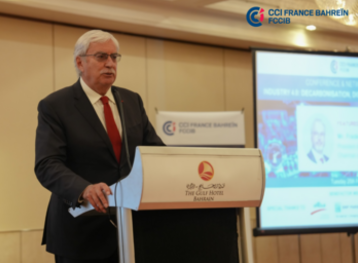Middle East economies to contract 7.6% in 2020
Economies in the Middle East are forecast to shrink by 7.6 per cent this year, much deeper than the previously estimated contraction, according to the latest regional outlook report.
The forecast by Oxford Economics is, however, bullish on the long-term outlook for the regional economies. Economic growth in the region is forecast to return to 4.0 per cent in 2021 and 2022 as lockdowns are fully eased, global travel picks up and Brent oil prices move closer to $50 per barrel.
The report, commissioned by the Institute of Chartered Accountants in England and Wales, for the sharp contraction in GDP this year is almost double the 3.9 per cent they predicted in April.
In a webinar held by ICAEW to share its insights on the global and regional economic outlook, panelists said the outlook for the non-oil economy in the GCC countries remains challenging.
Exports levels in oil-producing countries are experiencing severe damage, as they grapple with the huge collapse in oil prices which took place during March and April. The report forecasts that across the GCC, total exports will decline by between 6.0 per cent and 12 per cent in 2020. However, for oil importers, the outlook is slightly more encouraging due to the benefits from lower oil prices, even as crucial sectors such as trade and tourism take a hit and remittances come under pressure.
Panellists included Tim Fox, economist and former Emirates NBD Group head of Research & chief economist; Zibo Cao FCA, associate director of Macquarie Infrastructure and Real Assets Fund; and Dr Ernest Kan, chief advisor of Capital Markets China. The session was led by Scott Livermore, ICAEW economic advisor and chief economist at Oxford Economics.
Kan explained that during the first half of this year the global economy shrank at a pace unprecedented since World War II, as national governments implemented social distancing measures to battle the spread of Covid-19. While stringent lockdowns implemented in the second quarter of the year appear to have been successful in limiting the spread of the virus in most countries, they have put a significant strain on economic activity.
It is likely that travel restrictions will be a fact of life for some time, weighing on global tourist activity, an important pillar of the non-oil economy. Oxford Economics' forecast assumes that globally, international visitor arrivals will decline 55 per cent in 2020 and will not recover to pre-crisis volumes until 2023. While economic factors will play a role in the global recovery, how quickly travel restrictions are lifted and the speed at which people are prepared to resume foreign travel, will be more important.
The region's dependence on expat workers in vulnerable sectors means the burden of job losses will mainly fall on the expat population. With expat visas depending on employment and the lack of a social safety net, an expat exodus is likely as travel restrictions are eased. This could result in the population declining by between 4.0 per cent in Saudi Arabia and Oman, and around 10 per cent in the UAE and Qatar.
"What makes this global recession extraordinary is both its severity as well as the speed at which it took place. The issues we face are global in nature and require an international, collective solution. To rebuild the economy, Middle East governments must remain resilient and think long-term to make better-informed decisions," said Michael Armstrong, ICAEW regional director for the Middle East, Africa and South Asia.


